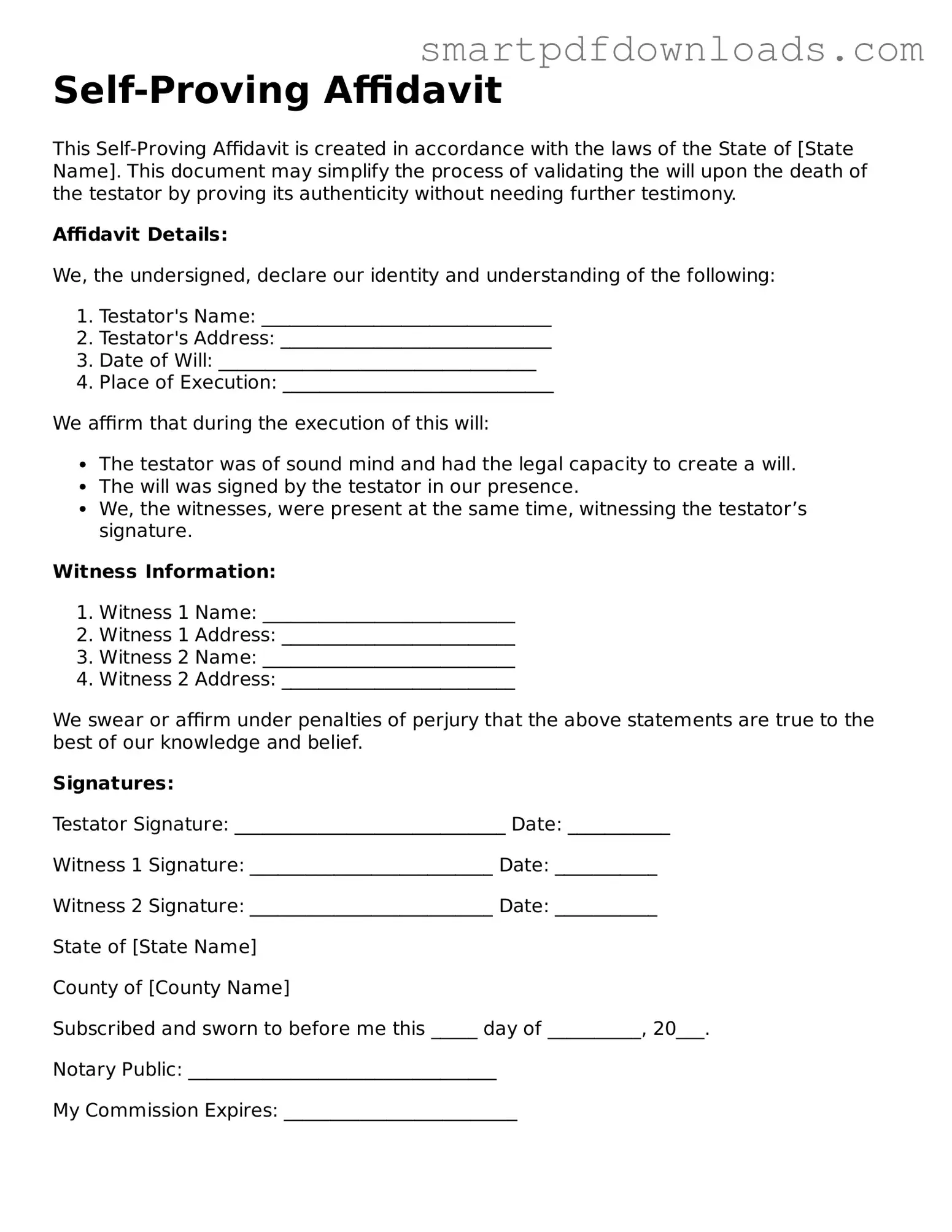Free Self-Proving Affidavit Form
A Self-Proving Affidavit is a legal document that allows a will to be validated without the need for witnesses to appear in court. This form simplifies the probate process by confirming that the will was properly executed and that the testator was of sound mind. By including a Self-Proving Affidavit, individuals can help ensure their wishes are honored efficiently and effectively.
Edit Self-Proving Affidavit Online

Free Self-Proving Affidavit Form
Edit Self-Proving Affidavit Online

Edit Self-Proving Affidavit Online
or
⇓ PDF File
Finish the form and move on
Edit Self-Proving Affidavit online fast, without printing.